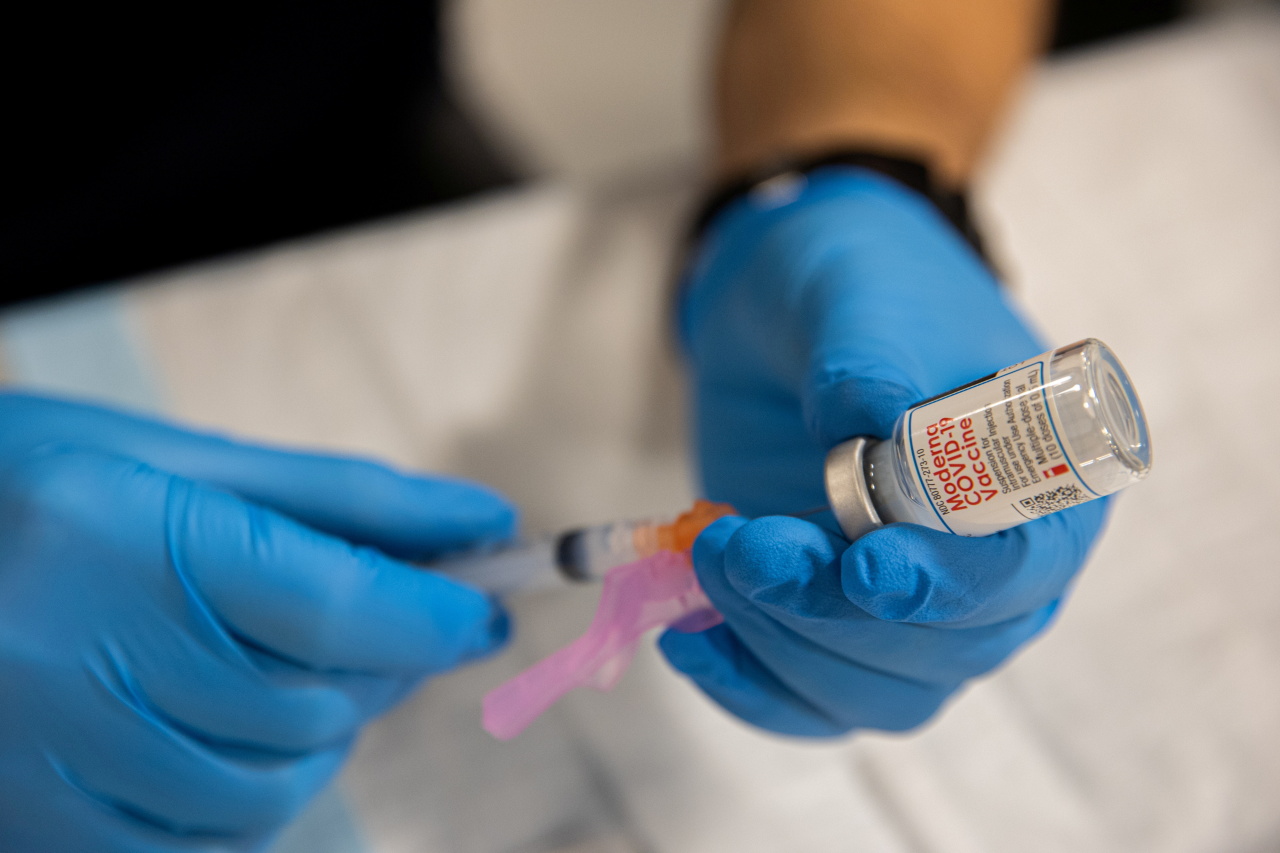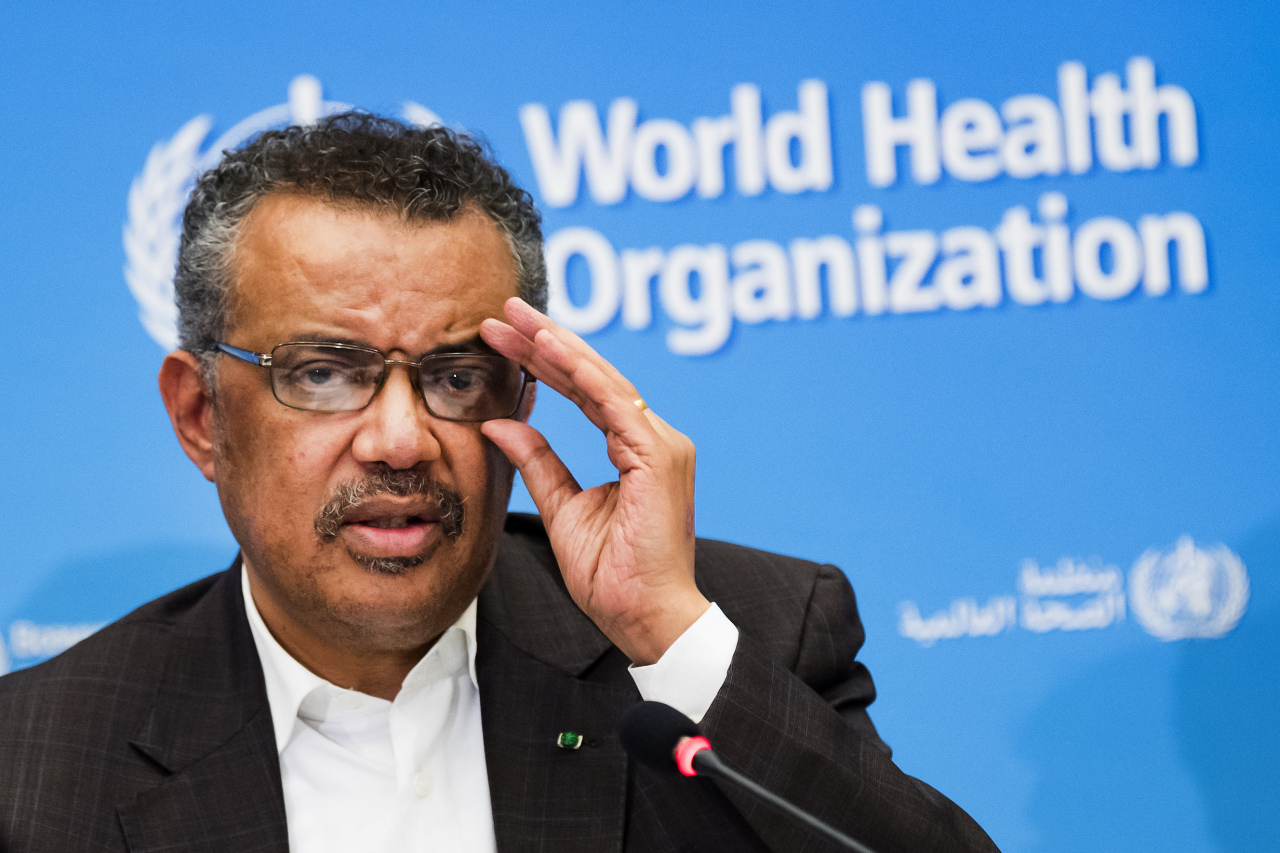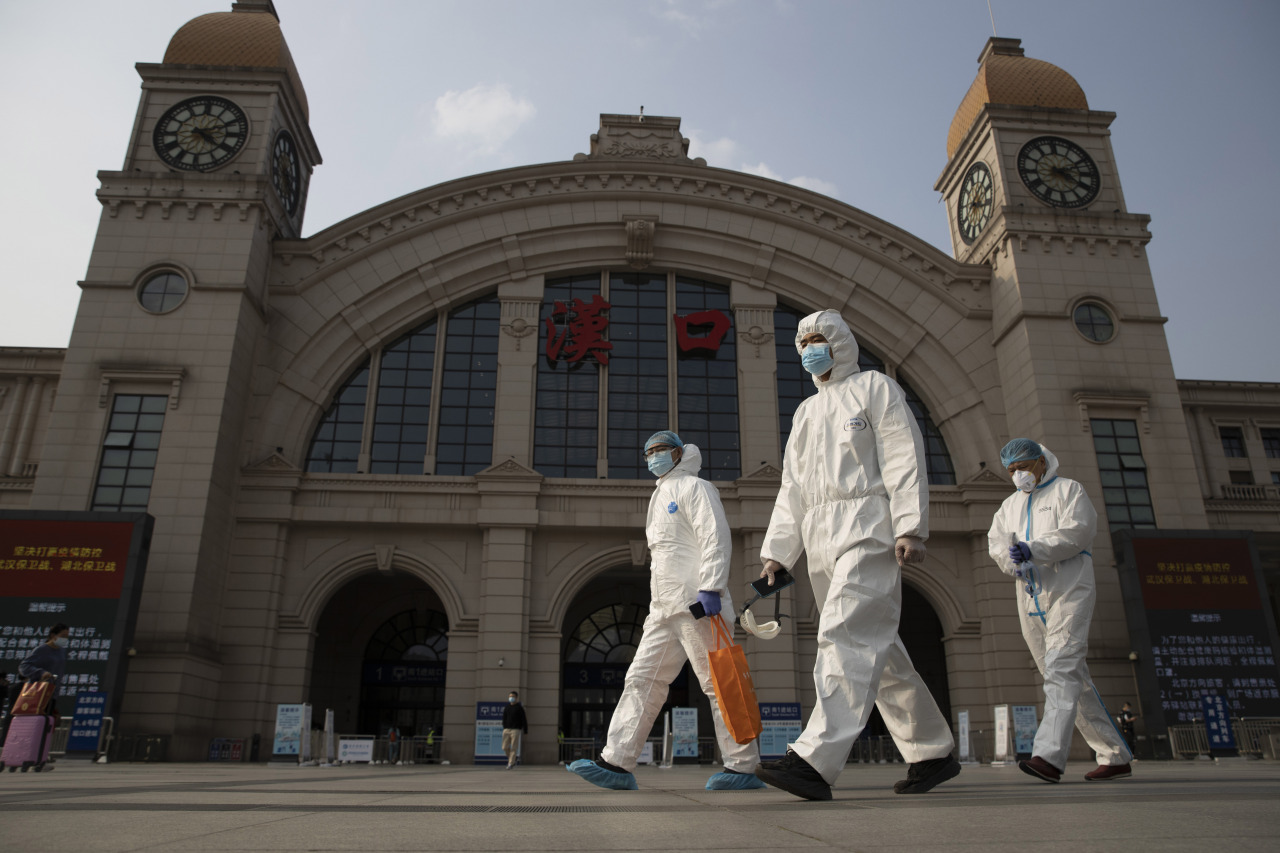 |
A health care worker prepares a dose of the Moderna COVID-19 vaccine at Queens Police Academy in the Queens borough of New York, Monday. (Reuters-Yonhap) |
The World Health Organization has warned that herd immunity for COVID-19 will not be achieved this year despite the vaccines already being rolled out in a number of countries.
“We are not going to achieve any levels of population immunity or herd immunity in 2021,” WHO chief scientist Soumya Swaminathan said Monday during a video press conference. “Even if it happens in a couple of pockets in a few countries, it’s not going to protect people across the world.”
Herd immunity means that enough people in a population would be immune to an infectious disease that it naturally prevents the spread of the virus.
While patience is needed as more vaccines are being developed and produced, Swaminathan said, governments and people must not forget the effective measures -- maintaining social distance, washing hands and wearing a mask -- to prevent the spread of the virus.
New variants of the coronavirus found in the UK, South Africa and Japan have raised concerns about the effectiveness of vaccines that are currently being rolled out. The WHO pointed out it is important to continuously evaluate that vaccines have reached safety and efficacy standards.
“There is almost no vaccine which has stayed static,” said Kate O’Brien, director of WHO’s immunization department. “We do always make an effort to improve all of the characteristics of vaccines to make them ever more impactful.”
 |
WHO Director General Tedros Adhanom Ghebreyesus (AP-Yonhap) |
Finding the virus origins
A team of World Health Organization experts tasked with investigating the origins of the novel coronavirus will arrive in China on Thursday, WHO Director General Tedros Adhanom Ghebreyesus said Monday.
“We look forward to working closely with our Chinese counterparts on this critical mission to identify the virus source and its route of introduction to the human population,” Tedros wrote on Twitter. “Studies will begin in Wuhan, China to identify the potential source of infection of the early cases.”
Wuhan is where the first cluster transmission of COVID-19 occurred in late December 2019.
China’s National Health Commission, however, has not released the exact details of the investigation team’s itinerary.
The confirmation of the date for the 10-member team’s arrival came after months of negotiations, delays and confusion.
The WHO chief said last week he was “very disappointed” that Beijing had not yet finalized authorizations for the international experts. Two of the team members had begun their trip while others could not travel due to what the WHO called a “visa clearance” issue.
After Tedros’ comments, Chinese Foreign Ministry spokesperson Hua Chunying said there might be some amount of misunderstanding.
“But there is no need to read too much into this,” she said. “We have smooth communication and pleasant cooperation.”
Despite the delay putting a question mark over China’s willingness to fully cooperate with the WHO mission, Beijing claimed it has maintained its openness about the virus outbreak.
“Since the outbreak of COVID-19, the Chinese side has maintained close communication and cooperation with WHO on global origin-tracing in an open, transparent and responsible manner,” Chinese Foreign Ministry spokesperson Zhao Lijian said Monday in a press briefing.
Beijing invited international experts twice last year -- in February and July -- while holding videoconferences and seminars between Chinese health experts and WHO teams, he added.
 |
Workers in protective suits walk past the Hankou railway station in Wuhan in central China’s Hubei province on April 7, 2020. (AP-Yonhap) |
Not playing blame game
The WHO has insisted that the international team’s mission to probe the origins of the COVID-19 pandemic was not intended to play the blame game.
WHO Emergencies Director Michael Ryan said the delayed mission, which is set to take place this week, is about science, not politics.
“Understanding the origins of disease is not about finding somebody to blame,” Ryan said Monday in a video press conference. “It is about finding the scientific answers about the very important interface between the animal kingdom and the human kingdom.”
“We are looking for the answers here, not culprits and not people to blame,” he said.
Tedros, head of the WHO, also asked to give the mission space to do its work.
“Scientific evidence will drive hypotheses, which will then be the basis for further, longer-term studies,” Tedros said in the press conference. “This is important not just for COVID-19, but for the future of global health security and to manage emerging disease threats with pandemic potential.”
“Let’s give this team of scientists the space to work with their Chinese counterparts effectively and let’s wish them all well,” the WHO chief said.
The COVID-19 pandemic has killed nearly 2 million people across the world over the past year as of Tuesday, according to Worldometer, a website that tracks real-time statistics of the global virus tally. Over 90 million people have been infected with the coronavirus while 65 million people have made a recovery.
By Kan Hyeong-woo (
hwkan@heraldcorp.com)








![[Exclusive] Hyundai Mobis eyes closer ties with BYD](http://res.heraldm.com/phpwas/restmb_idxmake.php?idx=644&simg=/content/image/2024/11/25/20241125050044_0.jpg)
![[Herald Review] 'Gangnam B-Side' combines social realism with masterful suspense, performance](http://res.heraldm.com/phpwas/restmb_idxmake.php?idx=644&simg=/content/image/2024/11/25/20241125050072_0.jpg)
